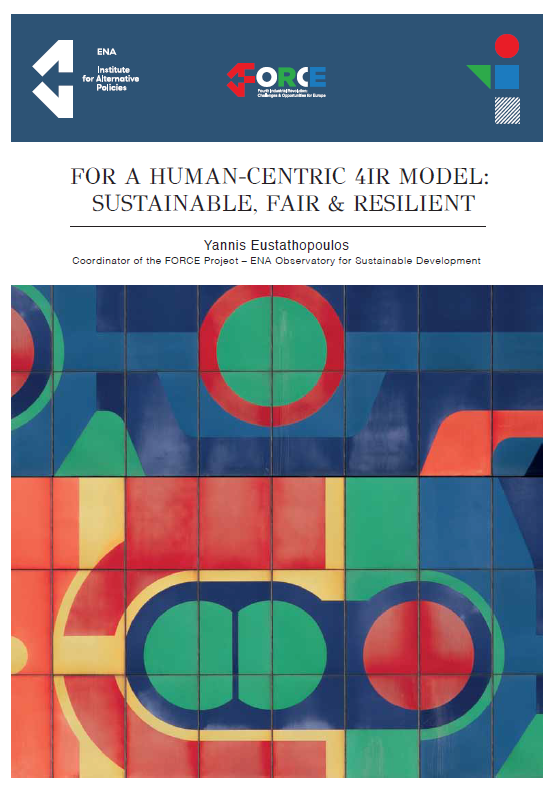For a human-centric model of the 4IR: Sustainable, fair & resilient
by: Yannis Eustathopoulos
September 2022
Για ένα ανθρωποκεντρικό μοντέλο της 4ΒΕ: Βιώσιμο, δίκαιο & ανθεκτικόNowadays, the technologies of the 4th Industrial Revolution/4IR [artificial intelligence (AI), robotics, the Internet of Things (IoT), cloud, augmented reality, 3D printing etc.) are central in the public debate about the future of the economy, the society and the environment. At the center of this debate we find the actual and potential crucial contribution of new technologies for achieving the Sustainable Development Goals (SDGs). A growing number of publications and articles however reveals negative consequences and risks as well as critical vulnerabilities of new technologies. The weaknesses of the 4IR are often attributed to the prevalence of an an oligopolistic digital economy model that accumulates considerable technological, financial and market power. This policy paper, which summarizes the works and results of the FORCE project, presents the numerous opportunities and challenges for Europe emerging from the 4IR. These challenges cover a wide range of areas: From the European countries’ digital sovereignty and economic resilience to the opportunities and consequences of new technologies on health, working conditions, employment, environment and human rights. In this context, a number of proposals are submitted on deepening and broadening the European Union’s current initiatives to regulate the digital sector, unlocking the potential of new technologies for sustainable development while shaping a human-centric model of the 4th Industrial Revolution.
Download
